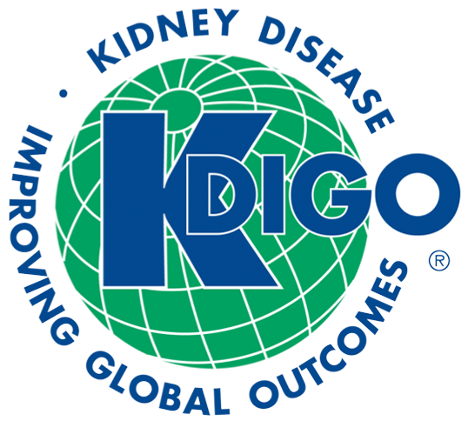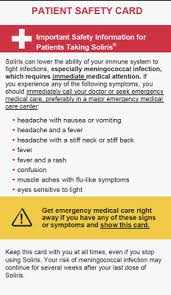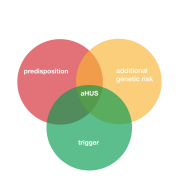Six years ago, aHUS featured, along with another renal disease MPGN/C3G, in a controversies conference held by KDIGO (Kidney Disease Improving Global Outcomes, https://kdigo.org/ ) in Barcelona , Spain. Complement being the common factor between the two diseases.

The outcome of the conference was a published report on the diagnosis and treatment of the two diseases. A copy of it can be found at this link HERE. Its content was arrived at by consensus among the participants. The participants were global experts in the two diseases who had been invited to attend the conference.
KDIGO has now chosen to re-examine renal diseases which may have complement impacting on the way the diseases develop. But now the scope of the next controversies conference has been extended to 10 renal diseases plus MPGN/C3G and “different forms of Complement Mediated TMA” . All may have a complement causual link. During the past six years the suspicion about complement’s part in other renal diseases has grown and a consensus is needed now on how much that part can affect diagnosis and treatment management. Just over two months from now those controversies are going to be debated in Florence, Italy.
Some of the additional ten kidney diseases now coming with scope of the conference may be familiar to aHUS patients others may not. They include Diabetes Nephrology, FSGS, Lupus Nephropathy, ANCA, Associated Renal Vasculitis, Anti-phospholipid syndrome (APS) , IgA nephropathy, Post Infectious Glomerulnephritis . aHUS is included under Complement mediated HUS. Quite a broad range of diseases to be looked at, also in some detail. So quite a challenge.
KDIGO has an established way in which the meetings achieve their objectives. All participants attend plenary talks at which the scene is set and the controversy topics are highlighted. Then the participants separate into breakout groups to thrash out and agree a consensus response to take back to the main body to be questioned further. These sessions are held over three days.
After the three days, all the output is turned into a conference report to confirm what was agreed -the consensus and remaining controversies. Participants do not get to review drafts of that article as that is left to a Conference Steering Group. For the duration of that period, typically 6 to 12 months, nothing appears in the public domain other than what KDIGO will reveal on a website page devoted to the conference. That page can be seen at this link HERE. It gives more background information to this conference and access to the scope document for it, from which some of the above has been cited.
For this conference there will be five “break out ” groups including one for Complement Mediated Forms of HUS, of which what is now called aHUS will be one. The controversies for this group are listed on pages 12 and 13 of the public document which can be seen at the above link. They include:
- What is the definition and the spectrum of complement-mediated forms of HUS?
Is the current terminology “atypical HUS” accurate, or does it need updating? If
updating is needed, what is a preferable alternative? Is the term “complementmediated forms of HUS” useful and adequate? - Which complement pathways—and to what extent—are involved in
complement-mediated HUS? Are pathways other than complement involved in
the pathogenesis of complement-mediated HUS? - Is it possible to distinguish complement activation/dysregulation in different
forms of HUS as transient versus permanent? Can this distinction be helpful in
classification and management of HUS? - What biomarkers and/or tests are helpful to diagnose and monitor complementmediated forms of HUS?
- How should the results of complement genetics (common and rare variants,
copy number variation, etc…) and tests for acquired autoantibodies (i.e. antifactor H autoantibodies) be reported and interpreted? - How do genetic results and test for acquired autoantibodies (i.e. anti-factor H
autoantibodies) impact on the management of complement-mediated HUS,
including in the setting of renal transplantation and in the choice of living related
donors? - Does the renal microenvironment contribute to the pathogenesis of renal
involvement in complement-mediated forms of HUS? - What is the optimal use of current therapies and what are the emerging
therapies for complement-mediated HUS? - When and how should complement inhibition be discontinued in complement mediated HUS?
- Is there a role for complement inhibition in STEC-HUS?
- Is there a role for complement inhibition in other forms of HUS (i.e. HUS post bone marrow transplant, pregnancy-associated HUS, etc.)?
Readers familiar with articles which have appeared on this websites over recent years would be able to map the work done on a patients aHUS research agenda , the findings in the aHUS diagnosis process research and Global Action’s risk matrix and views on aHUS nomenclature to the issues in this list. So the work of this conference is extremely important to global aHUS patients, as patients are to the conference.
Although the global experts attending the KDIGO conference have not been disclosed as yet ( now disclosed see roster HERE ) , it is known who the co-Chairs are. Professors Richard J Smith and Marina Vivarelli. Richard is better known by aHUS patients as the host of the biennial aHUS Patients Conference in Iowa,USA. Marina is an Italian pediatrician and renal disease researcher from Rome, Italy.
The KDIGO conference will include patients/caregivers “to gain the unique perspective they provide on patient-centered challenges, values, and preferences associated with these diseases as they relate to diagnosis, prognosis, management, and treatment”. The author will be representing global aHUS patients.
aHUS is getting a lot attention in 2022. The delayed ISN Symposium in Bergamo raising awareness as well as updating clinicians. The USA TMA Consortium hosting its first aHUS patients day on 20 August. And on 29 September to 2 October KDIGO will attempt to resolve current controversies associated with aHUS.
The outcome of KDIGO Controversy Conferences is expected to influence clinical practice and priorities for research for renal complement disease.The 2022 Conference outcomes when published in 2023 will have a marked influence on aHUS clinical practices and research for the remainder of this decade.
A decade of opportunity for a global aHUS patients, on that we can all agree..
Article No. 527


